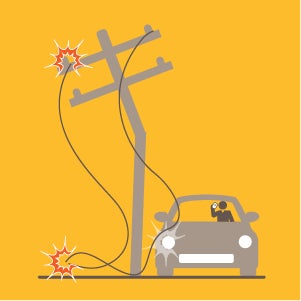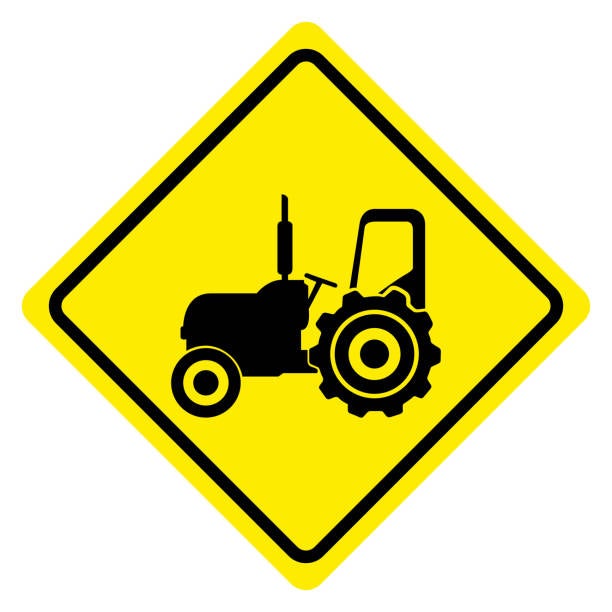Accidentally contacting a power line can be dangerous and in some cases, fatal. Prairie Energy wants to help our member-owners stay safe around power lines.
Keep a safe distance
Whether you are playing outdoors with your children or working on landscaping projects, keep a safe distance from power lines and other equipment your co-op uses to get electricity to your home.
Always remember to:
-
Stay away from power lines, meters, transformers and electrical boxes.
-
Don’t climb trees near power lines.
-
Never fly kits, remote control airplanes or balloons near power lines.
-
If you get something stuck in a power line, call your Touchstone Energy co-op to get it.
-
Keep a safe distance from overhead power lines when working with ladders or installing objects such as antennas.
-
Never touch or go near a downed power line.
-
Don’t touch anything that may be touching a downed wire, such as a car.
-
Keep children and pets away.
Read about more electrical hazards below:
Power Line Hazards and Cars

Power Line Hazards & Cars
- If a power line falls on a car, you should stay inside the vehicle. This is the safest place to stay. Warn people not to touch the car or the line. Call or ask someone to call the local cooperative and emergency services.
- The only circumstance in which you should consider leaving a car that is in contact with a downed power line is if the vehicle catches on fire. Open the door. Do not step out of the car. Instead, jump free of the car so that your body clears the vehicle before touching the ground. Once you clear the car, shuffle at least 50 feet away, with both feet on the ground.
- As in all power line related emergencies, call for help immediately by dialing 911, or call Prairie Energy at 800-728-0013
- Do not try to help someone else from the car while you are standing on the ground.
Generator Safety

Generator Safety
If it is necessary to use a portable generator, manufacturer recommendations and specifications must be strictly followed.
- If there are any questions regarding the operation or installation of the portable generator, a qualified electrician should be immediately contacted to assist in installation and start-up activities. The generator should always be positioned outside the structure.
- Generator use is a major cause of carbon monoxide (CO) poisoning. Generators should only be used in well ventilated areas.
When using gasoline- and diesel-powered portable generators to supply power to a building, switch the main breaker or fuse on the service panel to the "off" position prior to starting the generator.
- This will prevent power lines from being inadvertently energized by backfeed electrical energy from the generators, and help protect utility line workers or other repair workers or people in neighboring buildings from possible electrocution.
- If the generator is plugged into a household circuit without turning the main breaker to the “off” position or removing the main fuse, the electrical current could reverse, go back through the circuit to the outside power grid, and energize power lines or electrical systems in other buildings to at or near their original voltage without the knowledge of utility or other workers.
- The problem of backfeed in electrical energy is a potential risk for electrical energy workers. Electrocutions are the fifth leading cause of all reported occupational deaths. Following the safety guidelines below can reduce this risk.
Farm Safety

Farm Safety Tips
- Always lower portable augers or elevators to their lowest possible level - under 14 feet - before moving or transporting; use care when raising them.
- Keep all objects at least 10 feet away from overhead lines. Know where all overhead power lines are located on your property and inform your farm workers and family about them.
- Be aware of increased height when loading and transporting larger modern tractors with higher antennas.
- Never attempt to raise or move a power line to clear a path.
- Plan your route between fields, to bins and elevators, and on public roads so that you avoid low-hanging power lines.
- When moving large equipment or high loads near a power line, always use a spotter to help make certain that contact is not made with a line.
- Don’t use metal poles when breaking up bridged grain inside and around bins.
- As in any outdoor work, be careful not to raise any equipment such as ladders, poles or rods into power lines. Remember, non-metallic materials such as lumber, tree limbs, tires, ropes, and hay will conduct electricity depending on dampness and dust and dirt contamination.
- If equipment gets hung up on a power line, the operator should NOT get off the machinery unless in immediate danger. If the operator touches the ground and the equipment at the same time, he or she will become a channel for electricity. If the operator is in immediate danger and must leave the equipment, jump as far away from the machinery as possible and bunny hop (both feet landing together) from the accident. Never get back on machinery that touches a power line until the utility company disconnects the line.
- Use qualified electricians for work on drying equipment and other farm electrical systems.

